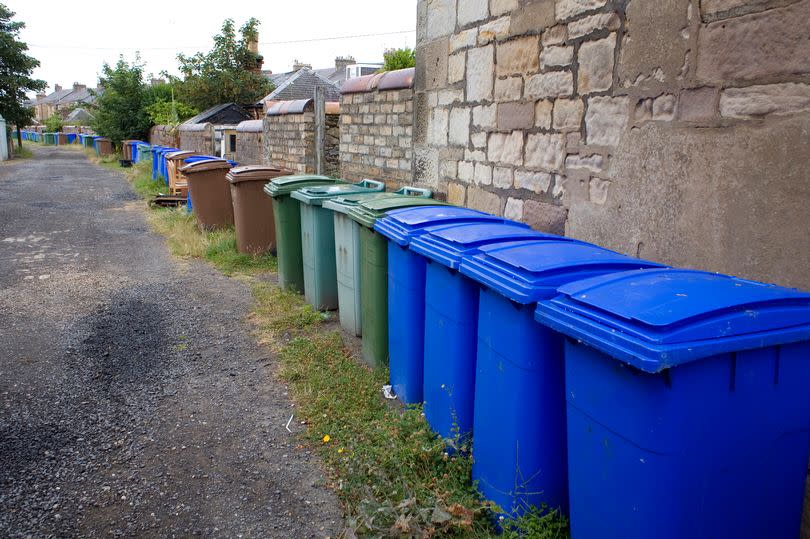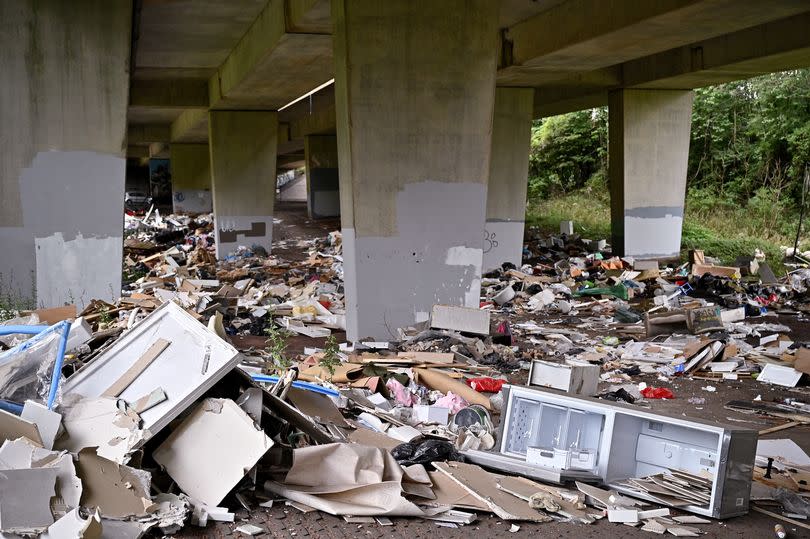Could Scottish households be fined for putting rubbish in wrong bin? New law explained

Scottish households could be fined for failing to correctly dispose of their rubbish under newly approved legislation.
The Circular Economy Bill, which passed unanimously at Holyrood on Wednesday (June 26), aims to modernise Scotland's waste management procedures to "tackle the climate emergency and the biodiversity crisis".
The legislation will give ministers more power to increase reuse and recycling rates, which will impact both homeowners and businesses.
One outline of the bill that will hit homeowners the hardest is the power for authorities to hand out fixed-penalty notices to those who fail to breach existing duties of care under the Environmental Protection Act 1990, in relation to the transfer of waste.
These duties include ensuring that waste includes no unauthorised or harmful deposit, which includes recycling bins contaminated by non-recyclable materials. This is because a recycling bin contaminated with enough non-recyclables can result in the entire contents being disposed of in a landfill.
Other duties include following the correct treatment or disposal of rubbish, to prevent the escape of the waste from their control or that of any other person and to ensure waste is only transferred to authorities bodies.
So, if you're caught putting things like plastic into your food waste bins, or nappies into recycling bins, you could be slapped with a fine. Existing legislation already applies to commercial outlets and previously did not affect owners of domestic properties.
Other measures include clampdowns on littering, fly tipping and introducing charges for single-use items. It is not confirmed when the approved legislation will come into force.
What is a circular economy?

A circular economy is a model of production and consumption, which involves sharing, leasing, reusing, repairing, refurbishing and recycling existing materials and products as long as possible, according to the European Parliament.
Essentially, this means phasing out the practice of making, using and disposing items and instead ensuring that such items are reused again. Essentially, a circular economy is like recycling on a larger scale, aiming to make sure that as much as possible is reused, either through repair or re-processing.
What measures are included in the circular economy bill?

As well as ensuring households use bins correctly, there are several other provisions set out in the bill.
These include a crackdown on littering, particularly from vehicles, in the form of a new fixed-penalty charge. Further enforcement against fly tipping is also to be introduced, allowing the Scottish Environment Protection Agency (SEPA) and local authorities to seize vehicles caught illegally dumping rubbish.
Other measures that will be introduced for commercial outlets include restrictions on the disposal of unsold goods and charges for single-use items. Scottish Ministers will be able to set recycling targets and must publish or refresh a circular economy strategy at least every five years.
The measures will be underpinned by support and investment, building on the investments already made through the £70 million Recycling Improvement Fund.
Minister for Climate Action Gillian Martin said: “There are huge opportunities in having an economy which makes reuse and recycling the default choice for Scottish households, businesses and the public sector.
“We have already seen businesses creating jobs by turning what we might otherwise throw away into valuable new products and services.
“The measures in the Circular Economy Bill will give local Councils and the Scottish Government the powers needed to support the sustainable use of resources and cut greenhouse gas emissions. For people to do the right thing for the planet, it is crucial that everyone experiences a modern, easy to use waste service."
“We will continue to work with local authorities and householders to co-design how these powers are implemented to take account of different circumstances and needs on our journey towards a truly circular economy.”
Join the Daily Record's WhatsApp community here and get the latest news sent straight to your messages

 Yahoo News
Yahoo News 
